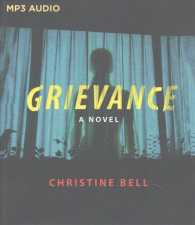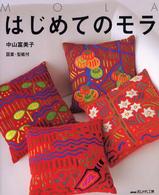Full Description
For more than 175 years, historically Black colleges and universities (HBCUs) have played a significant role in educating Black students. This book examines the experiences of a cohort of 16 Black male math majors at Morehouse College referred to as "the mathematical brotherhood." Through the lenses of Black masculinity and critical race theory, the author employs an asset-based approach to tell a captivating story about this cohort within a racially affirming learning community. Readers will hear how Morehouse empowers the students, as well as how they navigate and manage ongoing racial challenges, mathematical spaces, and society. Amplifying the voices of the participants, the study showcases the nation's top producer of Black male math majors, extends the knowledge base regarding HBCUs' multigenerational legacy of success, and makes a significant contribution to the growing body of discipline-based education research. The author provides recommendations for families, educators, policymakers, and researchers to improve Black boys' and men's mathematics achievement and academic outcomes. Book Features:
Centers Black males' cautionary tales about navigating school and society not only in their college years, but also in their formative years.
Provides insights regarding Black males' persistence in mathematics.
Includes ethnographic data that brings a math learning community to life.
Draws upon race-related frameworks to document Black male success in college.
Contents
Contents
Foreword Duane Cooper xi
Prelude xiii
Acknowledgments xvii
Introduction 1
Why Mathematics? 2
Why Brothers? 5
HBCUs 8
Scholarship on Mathematics at HBCUs 10
Overview of the Book 11
1. Morehouse Mathematics 13
Morehouse College: An Institutional Portrait 13
Morehouse Mathematics: A Historical Portrait 15
Morehouse Mathematics: A Contemporary Portrait 19
2. The Brothers' Journey to Morehouse Mathematics 26
Family Dynamics 26
Journey to Mathematics 27
Journey to Morehouse 38
Conclusion 42
3. The Mathematical Brotherhood 44
Morehouse's Brotherhood 44
Major Declaration 46
The Mathematical Brotherhood 49
Mathematical Persistence 53
Mathematical Trials and Tribulations 56
Division Among the Brothers 61
Conclusion 63
4. The Faculty 65
The Mathematics Faculty 65
Student-Generated Descriptions of the Mathematics Faculty 69
Less Highly Regarded Mathematics Faculty 75
Faculty Improvements 78
Non-Mathematics Faculty 80
Conclusion 82
5. Morehouse's Mathematics Learning Community 84
Math Lab 84
Third Floor Respect 87
Third Floor Disrespect 89
Collegiate Activities and Events 92
Alumni-Related Activities and Events 99
Summary of Activities and Events to Promote Community 102
Conclusion 103
6. The Brothers' Racialized Experiences 105
Racialized K-12 Experiences 105
Racialized Experiences in Math-Related Contexts 109
Racialized Experiences in Everyday Life 113
Morehouse as a Racially Affirming Space 118
Conclusion 120
7. Moving Forward 121
Future Goals and Aspirations 121
Implications for Undergraduate Math Education 124
Implications for Families 128
Implications for K-12 Math Education 130
Implications for Broadening the Participation of Black Men in the Mathematical Sciences 132
Implications for Policy 134
Implications for Future Research 135
Coda 137
Afterword Erica N. Walker 139
Appendix A: Theoretical and Methodological Notes 143
Appendix B: Observational Data 147
Appendix C: Fraternal Vocabulary 151
Appendix D: Acronym Glossary 153
Notes 155
References 157
Index 175
About the Author 183







